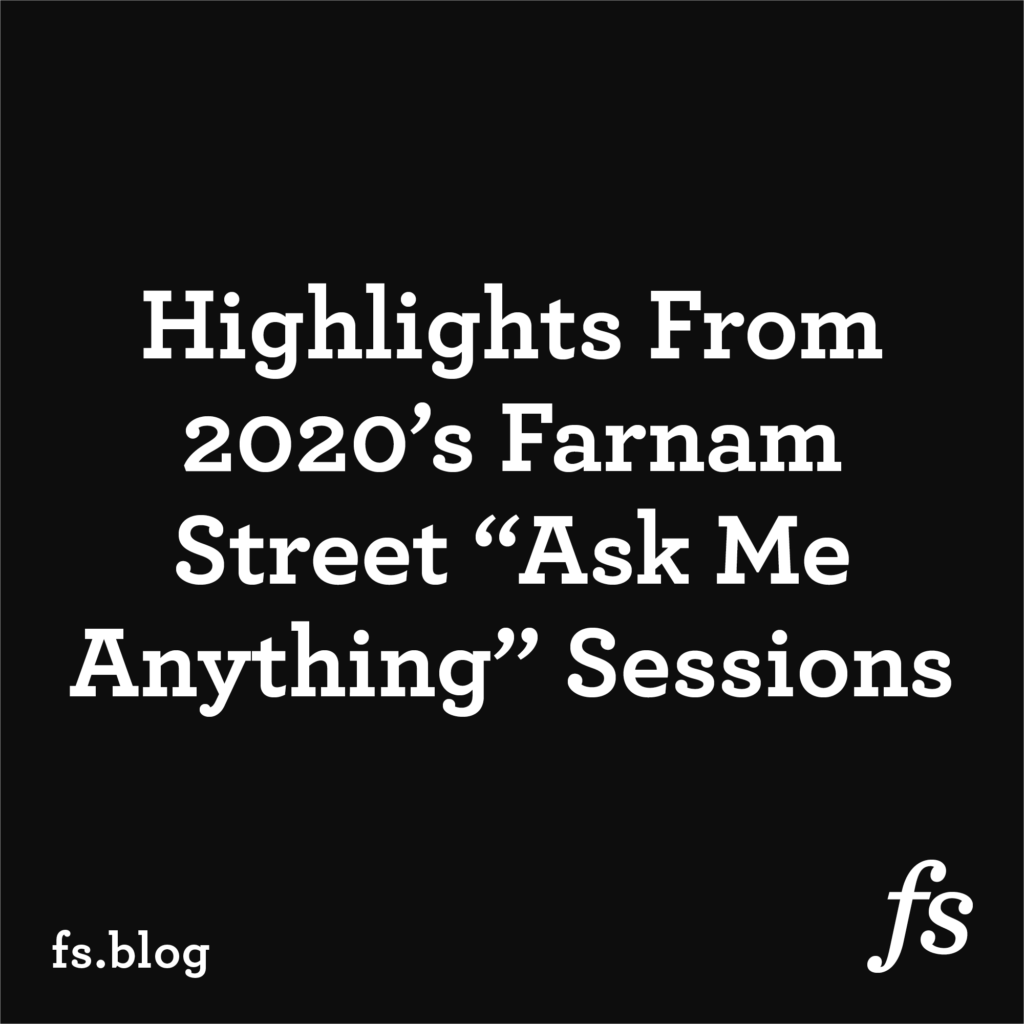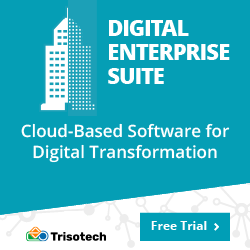Highlights From 2020’s Farnam Street “Ask Me Anything” Sessions
Blog: FS - Smart decisions
Each month, Farnam Street members receive an exclusive chance to get personalized advice and answers to their burning questions from an expert guest. In 2020, we hosted “Ask Me Anything” (AMA) sessions with guests from a wide range of fields, including journalism, psychology, baking, business, and more. In this post, we’ve picked out a selection of highlights from their most practical and insightful answers. To gain access to 25+ past AMA sessions and participate in future ones, become a Farnam Street member. If you’re already a member, you can view all AMAs here.
***
AMA Highlights Part 1
Shane Parrish, FS Founder – Jan 2020
I don’t want to optimize for work, and I don’t want to optimize for family time. I want to optimize for life. I get one life and I don’t want to look back at ninety yelling at myself because I regret doing or not doing something. I always try to keep that end in mind.
Anese Cavanaugh, IEP Method Founder – Feb 2020
Culture is the energy, the container, we create together to do our best work, show up as our best selves, be productive, and feel safe. It’s how we feel when we’re doing our work together.
Jeff Hunter, Talentism Founder – March 2020
All of us do work that matters. It may matter in a little way, it may matter in a big way. We’re surrounded by signals all the time that say some work is more valuable than others. But as I like to say, the person who cleans the bathroom and does that excellently is probably more valuable than somebody who’s the head of an organization and does it terribly.
Katherine Eban, Investigative Journalist – April 2020
As a journalist doing a book, it’s like a marriage; and I know this sounds a little cynical but,
marriages only get worse as they go along so you have to be really in love to start with. So, there’s got to be a real love there with the topic because the project and the reporting and the work is only going to get deeper and worse the further you get into the project. Start from a good strong place.
Marc Tarpenning, Tesla Co-Founder – July 2020
Long-term thinking is really this idea of always keeping as much optionality in the future as you can. Because you don’t know what the future is going to bring. So what you don’t want to do is constrain your future possible options because you’re on some trajectory.
Jesse Mecham, YNAB Founder – August 2020
Budgeting just means you’re deciding. We don’t want people spending less, we really want people spending without guilt. That approach of thinking you’re going to push through and restrict yourself just fits and starts. People do that again and again. Give yourself room to learn how you spend money and learn what you care about, and slowly as you work the four rules, you’ve found something sustainable.
Gretchen Rubin, Happiness Project Author – Sept 2020
People who have habits that work for them have a happier, healthier, more productive, more creative life. People whose habits don’t work for them have a lot more challenges. It’s a question of thinking more about how to make something [which makes you happier] into a habit.
Stefanie Johnson, Management Professor – Oct 2020
One of the amazing things about inclusion is that it’s really something that any of us can do. It’s not like you have to be a leader to make someone feel seen. Any of us can do that.
***
Check out the Farnam Street Youtube channel for part 2 and part 3.
The post Highlights From 2020’s Farnam Street “Ask Me Anything” Sessions appeared first on Farnam Street.
Leave a Comment
You must be logged in to post a comment.








